Pablo Neruda was the pen name and, later, legal
name of the Chilean poet-diplomat and politician Neftali Ricardo
Reyes Basoalto. He chose his pen name after the Czech poet Jan
Neruda. In 1971 Neruda won the Nobel Prize for Literature. Neruda
became known as a poet while still a teenager. He wrote in a
variety of styles including surrealist poems, historical epics,
overtly political manifestos, a prose autobiography, and
erotically-charged love poems such as the ones in his 1924
collection Twenty Love Poems and a Song of Despair. He often
wrote in green ink, which was his personal symbol for desire and
hope.
On July 15, 1945, at Pacaembu Stadium in São
Paulo, Brazil, he read to 100,000 people in honor of the
Communist revolutionary leader Luís Carlos Prestes. During his
lifetime, Neruda occupied many diplomatic positions and served a
term as a senator for the Chilean Communist Party. When President
González Videla outlawed communism in Chile in 1948, a warrant
was issued for Neruda's arrest. Friends hid him for months in the
basement of a house in the Chilean port of Valparaíso. Later,
Neruda escaped through a mountain pass near Maihue Lake into
Argentina. Years later, Neruda was a close advisor to Chile's
socialist President Salvador Allende. When Neruda returned to
Chile after his Nobel Prize acceptance speech, Allende invited
him to read at the Estadio Nacional before 70,000 people.
Click on the picture to get a larger
version
| Lovely area |
 |
| Other
various items around |
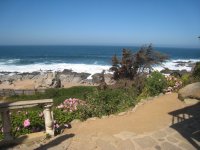 |
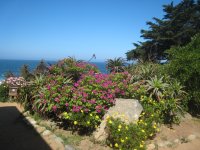 |
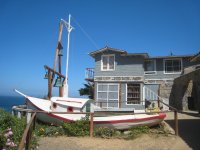 |
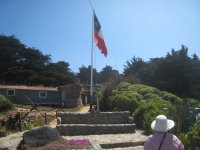 |
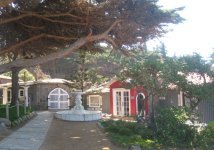 |
< Back to the index

